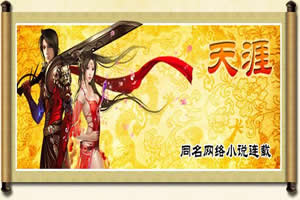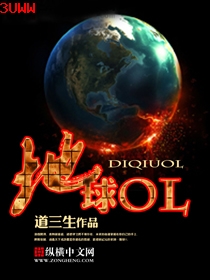wgolding.lordoftheflies-第54部分
按键盘上方向键 ← 或 → 可快速上下翻页,按键盘上的 Enter 键可回到本书目录页,按键盘上方向键 ↑ 可回到本页顶部!
————未阅读完?加入书签已便下次继续阅读!
This final hunt; after the conch is broken; is the pursuit of the figure representing civilized law and order; it is the law and order of a primitive culture。 Finally; Jack; through misuse of the dead Piggy's glasses; accidentally sets the island on fire。 A passing cruiser; seeing the fire; lands to find only a dirty group of sobbing little boys。 〃 'Fun and games;' said the officer。 。 。 。 'What have you been doing? Having a war or something?' 〃 (185)。
But are all the meanings of the novel as clear as they seem? To restrict it to an imaginative re…creation of Freud's theory that children are little savages; that no child is innocent whatever popular Christian theology would have us believe; is to limit its significance for the adult world。 To say that the 〃beasts〃 we fear are within; that man is essentially irrational…or; to place a moral judgment on the irrational; that man is evil…that; again; is too easy。 In this forced isolation of a group of children; Golding is making a statement about the world they have left…a world that we are told is 〃in ruins。〃 According to Huizinga's theory of play; war is a game; a contest for prestige which; like the games of primitives or of classical athletes; may be fatal。 It; too; has its rules; although the modern concept of total war tends to obscure both its ritualistic and its ennobling character。 It; too; has its spatial and temporal limitations; as the rash of 〃limited〃 wars makes very clear。 More than once the children's acts are pared to those of the outside
19。William Robertson Smith; Lectures on the Religion of the Semites; 3rd ed。; with an introduction by Stanley A。 Cook (New York: Macmillan; 1927)。
20。Totem and Taboo; p。 916。
world。 When Jack first blackens his face like a savage; he gives his explanation: 〃 'For hunting。 Like in the war。 You know…dazzle paint。 Like things trying to look like something else' 〃 (57)。 Appalled by one of the ritual dances; Piggy and Ralph discuss the authority and rationality of the apparently secure world they have left:
〃Grownups know things;〃 said Piggy。 〃They ain't afraid of the dark。 They'd meet and have tea and discuss。 Then things 'ud be all right…〃
〃They wouldn't set fire to the island。 Or lose…〃
〃They'd build a ship…〃
The three boys stood in the darkness; striving unsuccessfully to convey the majesty of adult life。
〃They wouldn't quarrel…〃
〃Or break my specs…〃
〃Or talk about a beast…〃
〃If only they could get a message to us;〃 cried Ralph desperately。 〃If only they could send us something grown…up 。 。 。 a sign or something〃 (86…87)。
The sign does e that night; unknown to them; in the form of the parachute and its attached corpse。 The pilot is the analogue in the adult world to the ritual killing of the child Simon on the island; he; like Simon; is the victim and scapegoat of his society; which has unleashed its instincts in war。 Both he and Simon are associated by a cluster of visual images。 Both are identified with beasts by the children; who do see the truth…that all men are bestial…but do not understand it。 Both he and Simon attract the flies from the Lord of the Flies; the pig's head symbolic of the demonic; both he and Simon are washed away by a cleansing but not reviving sea。 His position on the mountain recalls the hanged or sacrificed god of Sir James Frazer's The Golden Bough; in which an effigy of the god is buried or thrown into the sea to insure fertility among many primitives; here; however; we have a parody of fertility。 He is dead proof that Piggy's exaggerated respect for adults is itself irrational。 When the officer at the rescue jokingly says; 〃What have you been doing? Having a war or something?〃 this representative of the grown…up world does not understand that the games of the children; which result in two deaths; are a moral mentary upon the primitive nature of his own culture。 The ultimate irrationality is war。 Paradoxically; the children not only regress to a primitive and infantile morality; but they also degenerate into adults。 They prove that; indeed; 〃children are but men of a smaller growth〃
Notes on Lord of the Flies1
E。 L。 EPSTEIN
IN answer to a publicity questionnaire from the American publishers of Lord of the Flies; William Golding (born Cornwall; 1911) declared that he was brought up to be a scientist; and revolted; after two years of Oxford he changed his educational emphasis from science to English literature; and became devoted to Anglo…Saxon。 After publishing a volume of poetry he 〃wasted the next four years;〃 and when World War II broke out he joined the Royal Navy。 For the next five years he was involved in naval matters except for a few months in New York and six months with Lord Cherwell in a 〃research establishment。〃 He finished his naval career as a lieutenant in mand of a rocket ship; he had seen action against battleships; submarines and aircraft; and had participated in the Walcheren and D…Day operations。 After the war he began teaching and writing。 Today; his novels include Lord of the Flies (Coward…McCann); The Inheritors (which may loosely be described as a novel of prehistory but is; like all of Golding's work; much more); and Pincher Martin (published in this country by Harcourt Brace as The Two Deaths of Christopher Martin)。 He lists his Hobbies as thinking; classical Greek; sailing and archaeology; and his Literary Influences as Euripides and the anonymous Anglo…Saxon author of The Battle of Maldon。
The theme of Lord of the Flies is described by Golding as follows (in the same publicity questionnaire): 〃The theme is an attempt to trace the defects of society back
1。This article appeared in the original Capricorn edition of Lord of the Flies (New York: Putnam's; 1959); 249…55。
to the defects of human nature。 The moral is that the shape of a society must depend on the ethical nature of the individual and not on any political system however apparently logical or respectable。 The whole book is symbolic in nature except the rescue in the end where adult life appears; dignified and capable; but in reality enmeshed in the same evil as the symbolic life of the children on the island。 The officer; having interrupted a man…hunt; prepares to take the children off the island in a cruiser which will presently be hunting its enemy in the same implacable way。 And who will rescue the adult and his cruiser?〃
This is; of course; merely a casual summing…up on Mr。 Golding's part of his extremely plex and beautifully woven symbolic web which bees apparent as we follow through the book; but it does indicate that Lord of the Flies is not; to say the least; a simple adventure story of boys on a desert island。 In fact; the implications of the story go far beyond the degeneration of a few children。 What is unique about the work of Golding is the way he has bined and synthesized all of the characteristically twentieth…century methods of analysis of the human being and human society and used this unified knowledge to ment on a 〃test situation。〃 In this book; as in few others at the present time; are findings of psychoanalysts of all schools; anthropologists; social psychologists and philosophical historians mobilized into an attack upon the central problem of modern thought: the nature of the human personality and the reflection of personality on society。2
2。Epstein perhaps overstates here。 The novel cannot be taken as a final synthesis of modern thought or as the ultimate ment on the 〃nature of the human personality。〃 The boys are not pletely free agents; they have been molded by British civilization for some years before being deposited on the island。 They attempt to establish a government that imitates democracy; they retain confidence in adults; they; at least for a while; behave in accord with prior training; as when Roger throws the stones near but not at Henry; pp。 56…57。 Some events that occur depend on circumstance rather than cause and effect。 For example; when the boys ask for a sign from the adult world (p。 87); the sign conveniently appears (pp。 88…89)。 The fortuitous arrival of the cruiser at the climactic moment is also a result of obvious manipulation on the part of Golding。 These maneuvers militate against the authenticity of the theme。 They are not good 〃evidence。〃…Eds。
Another feature of Golding's work is the superb use of symbolism; a symbolism that 〃works。〃 The central symbol itself; 〃the lord of the flies;〃' is; like any true symbol; much more than the sum of its parts; but some elements of it may be isolated。 〃The lord of the flies〃 is; of course; a translation of the Hebrew Ba‘alzevuv (Beelzebub in Greek) which means literally 'lord of insects。〃 It has been suggested that it was a mistranslation of a mistransliterated word which gave us this pungent and suggestive name for the Devil; a devil whose name suggests that he is devoted to decay; destruction; demoralization; hysteria and panic and who therefore fits in very well with Golding's theme。 He does not; of course; suggest that the Devil is present in any traditional religious sense; Golding's Beelzebub is the modern equivalent; the anarchic; amoral; driving Id whose only function seems to be to insure the survival of the host in which it is embedded or embodied; which function it performs with tremendous and single…minded tenacity。 Although it is possible to find other names for this force; the modern picture of the personality; whether drawn by theologians or psychoanalysts; inevitably includes this force or psychic structure as the fundamental principle of the Natural Man。 The tenets of civilization; the moral and social codes; the Ego; the intelligence itself; form only a veneer over this white…hot power; this uncontrollable force; 〃the fury and the mire of human veins。〃 Dostoievsky found salvation in this freedom; although he found damnation in it also。 Yeats found in it the only source of creative genius (〃Whatever flames upon the night;/ Man's own resinous heart has fed。〃)。 Conrad was appalled by this 〃heart of darkness;〃 and existentialists find in the denial of this freedom the source of perversion of all human values。 Indeed one could; if one were so minded; go through the entire canon of modern literature; philosophy and psychology and find

![[网王同人]colorless wind封面](http://www.baxi2.com/cover/noimg.jpg)



